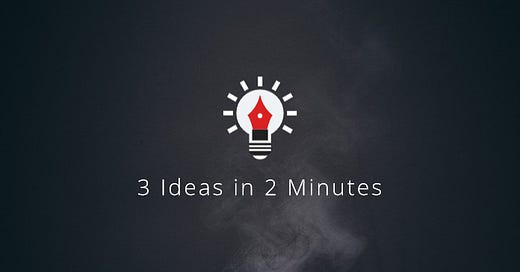#191: Cherry-Picking, Sampling Bias & Belief Confidence
3 Ideas in 2 Minutes on Biased Storytelling
I. Cherry-Picking
As I’ve implied in my last newsletter #190, Brazilian Jiu-jitsu is pointless. I’ve spent hundreds of hours of my life rolling in sweat on the mats. Yet I still keep getting smashed by higher belts. I’ve had multiple injuries and my body is sore all the time. Going to the gym three times a week has cost me thousands of dollars in gym membership and fuel. Not once did I have to use BJJ in a self-defence scenario. And if I did, chances are I’d be better off running away anyway. So why train at all?
Cherry Picking, also known as Selective Evidence, refers to the practice of emphasising data that supports a particular viewpoint while ignoring or downplaying evidence that contradicts it. Put differently, you can badmouth anything by selectively looking at information that supports the story you’d like to tell yourself or others. Obviously, the same goes for praising BJJ as the holy grail of personal growth while ignoring the sacrifices that come with it. Sacrifices you have to make with anything worth pursuing.
II. Sampling Bias
Sampling Bias sneaks in when your sample doesn’t quite mirror the larger population, often because certain groups are left out. Imagine trying to gauge a city’s coffee preferences but only surveying hipster cafés. You’d miss the tea-loving grannies and the caffeine-abstaining writers named Chris. Your skewed results will scream “cold brew for all” when it’s far from the truth.
Avoiding this pitfall means embracing randomness by selecting participants in a way that gives everyone an equal chance of being included. A special case of Sampling Bias is Nonresponse Bias, a hilarious example of which I shared in a previous sneak peek on Patreon. As with Cherry Picking, your facts aren’t necessarily wrong. But you’re looking at only parts of the story.
III. Belief Confidence
Legendary psychologist Daniel Kahneman knew that all too often, we tend to rely more on a convincing story rather than on rigorous evidence:
The confidence people have in their beliefs is not a measure of the quality of evidence but of the coherence of the story that the mind has managed to construct.
—Daniel Kahneman
🐘
Have a great week,
Chris
themindcollection.com



